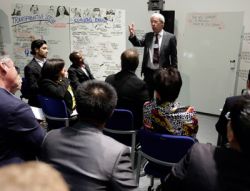
[2013-09-17] Last week Peter Zoller participated in the “Annual Meeting of the New Champions” of the World Economic Forum in Dalian, northern China. The quantum physicist presented the concepts behind his current research work and talked with artists, entrepreneurs and academics.
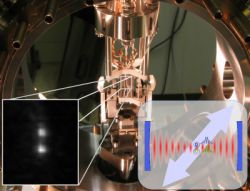
[2013-09-16] A team of scientists in Innsbruck, Austria, made an important step toward distributed quantum computing with cavities linking remote atom-based registers. They demonstrated precise control of the coupling of each of two trapped ions to the mode of an optical resonator.
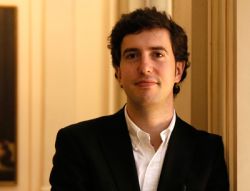
[2013-08-20] In October 2013, young Catalan physicist Oriol Romero-Isart will add his expertise to the Innsbruck quantum physics community. Shortly after his recruitment to the University of Innsbruck, Austria, he received one of the most highly valued European research grants: an ERC Starting Grant. The physical theorist will study the control and manipulation of quantum systems through magnetic fields and superconductors.
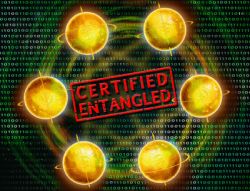
[2013-08-05] For quantum physicists, entangling quantum systems is one of their every day tools. Entanglement is a key resource for upcoming quantum computers and simulators. Now, physicists in Innsbruck and Geneva realized a new, reliable method to verify entanglement in the laboratory using a minimal number of assumptions about the system and measuring devices. Hence, this method witnesses the presence of useful entanglement. Their findings on this ‘verification without knowledge’ has been published in Nature Physics.
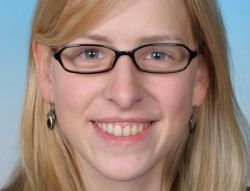
[2013-07-23] Berit Vogell von der Forschungsgruppe um Peter Zoller wurde Anfang Juli am Fachbereich Physik der Universität Hamburg mit dem diesjährigen Otto-Stern-Preis ausgezeichnet. Ihre Diplomarbeit ‚Hybrid Quantum Systems: Interfacing a Micromechanical Resonator wth Ultracold Atoms' wurde von der Jury als die beste Abschlussarbeit ausgewählt.